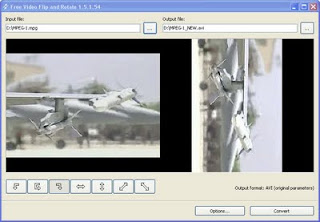The following are translated and summarized from an article with the title of "管理者最不应该说的十句话" which believed to be originated from the China Baidu blogosphere.
Below are the 10 taboos that managers/leaders should never say, but quite common to hear them saying.
1. "Not my business" - as a manager, you have your share of responsibility on every big and small matter in the company. Even though when it is totally out of your responsibility, you should graciously provide guidance to demonstrate your liberal-mindness and courtesy. If you have spoken this to your subordinates, your image might be easily subverted. If you have spoken this to your peers, it will cause conflict and misunderstanding. If you have spoken this to your boss, you might have annoyed him/her.
2. "Why do you all..." - before you start questioning others, think about any mistake on your own, and how much effort you have put in. Sometimes, be tolerant to others' mistake is an encouragement for them to improve. Using a series of "why" to launch attack on people might just end up with a series of answer just to tackle your "why". It might be better for solving the issue if you ask question like "Why didn't I collaborate well with you all? Where you need my help?".
3. "How I got scolded from above, I'll do the same to you" - one of the function of manager is to bridge the information from the top to the bottom, but you should convey the message effectively instead merely passing on the whole thing. To the top, you should be responsible and get the thing done. To your subordinates, you should attempt to motivate and show your support. The right thing you got to do is to be courageous to take on the pressure from the top, show your responsibility, and ease the tension of subordinates.
4. "I have no way to..." - the capability of a manager, in certain respect, is measured by the ability in problem-solving. Only emphasizing on objective reasons and not aggressively manoeuvre whatever resource in your hand will only show your helplessness and setback to your boss and subordinates. You have to believe that solutions always outnumbered the problems, and group wisdom can tackle the hardest moment.
5. "I say no means no" - this is a very egocentric discourse which does not provide relevant explanation to fact, and is hard to convince others. The situation can be worsen when we don't base on fact, and no open for discussion. In fact, even if the opinion is wrong, there is no harm to listen to it, and correct it accordingly. Making decision sidedly could be a sign of dictatorship which nobody like.
6. "Just do what you say" - this sounds like angry words or irresponsible remark. When getting into controversy and your opinion not accepted, saying so will make the listeners sense that you have no point. Instead, you should communicate all your idea clearly, in a cool manner.
7. "I can always take action on..." - this is a very stubborn discourse that make others feel uneasy. Trying to overwhelm others will only derogate your image and plant the seeds of hatred. Remember to pay respect to others.
8. "You are so stupid" - ridicule, satire, sarcastic discourse will hurt others' esteem and feeling. This will cause your subordinates to on the surface listen to you and act according to your command, but in reality they are in the state of perfunctory. This is very harmful to productivity and work quality.
9. "No, it is out of my ability. Let the capable one do it" - If you try to avoid or contradict assignment with this discourse, or to ridicule others to hide out your inner panic, it shows that you don't have sense to accept challenge. By showing this attitude, you are not qualified as manager (anymore).
10. "All is good", "pretty good" - vague recognition is lack of sincerity and cannot serve to inspire or motivate, as people just doesn't like insincere flattery. Therefore, verbal recognition and praise should be timely, rightful and specific. To praise timely and appropriately is a skill that all leaders must learn.




